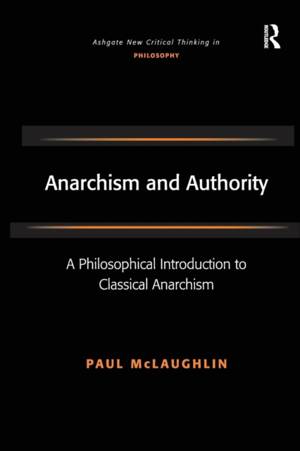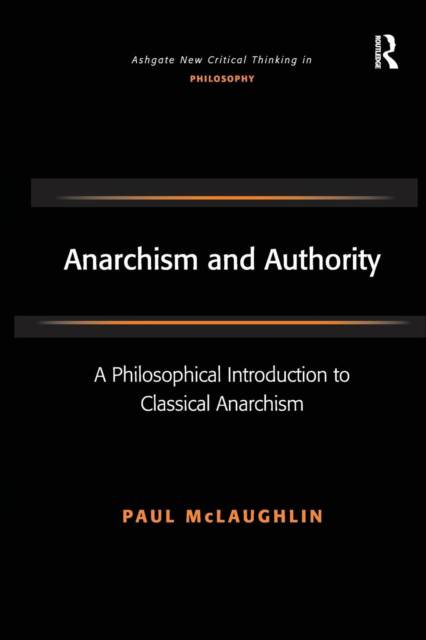
- Afhalen na 1 uur in een winkel met voorraad
- Gratis thuislevering in België vanaf € 30
- Ruim aanbod met 7 miljoen producten
- Afhalen na 1 uur in een winkel met voorraad
- Gratis thuislevering in België vanaf € 30
- Ruim aanbod met 7 miljoen producten
Zoeken
Anarchism and Authority
A Philosophical Introduction to Classical Anarchism
Paul McLaughlin
Paperback | Engels
€ 106,95
+ 213 punten
Uitvoering
Omschrijving
Examining the political theory of anarchism from a philosophical and historical perspective, Paul McLaughlin relates anarchism to the fundamental ethical and political problem of authority. The book pays particular attention to the authority of the state and the anarchist rejection of all traditional claims made for the legitimacy of state authority, the author both explaining and defending the central tenets of the anarchist critique of the state. The founding works of anarchist thought, by Godwin, Proudhon and Stirner, are explored and anarchism is examined in its historical context, including the influence of such events as the Enlightenment and the French Revolution on anarchist thought. Finally, the major theoretical developments of anarchism from the late-nineteenth century to the present are summarized and evaluated. This book is both a highly readable account of the development of anarchist thinking and a lucid and well-reasoned defence of the anarchist philosophy.
Specificaties
Betrokkenen
- Auteur(s):
- Uitgeverij:
Inhoud
- Aantal bladzijden:
- 210
- Taal:
- Engels
Eigenschappen
- Productcode (EAN):
- 9781138276147
- Verschijningsdatum:
- 28/11/2016
- Uitvoering:
- Paperback
- Formaat:
- Trade paperback (VS)
- Afmetingen:
- 156 mm x 234 mm
- Gewicht:
- 308 g

Alleen bij Standaard Boekhandel
+ 213 punten op je klantenkaart van Standaard Boekhandel
Beoordelingen
We publiceren alleen reviews die voldoen aan de voorwaarden voor reviews. Bekijk onze voorwaarden voor reviews.











